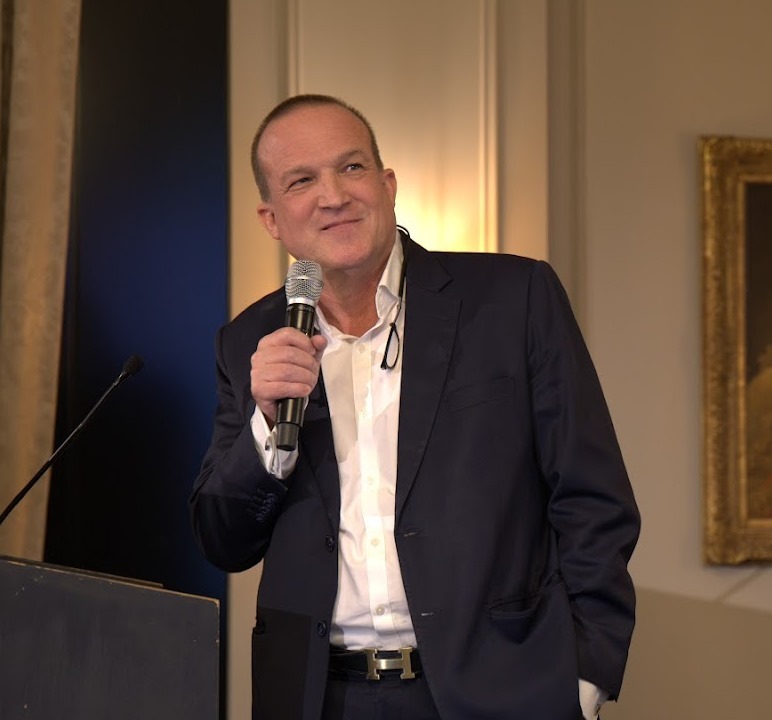Hong Kong – August 6, 2024 – Interview with Dr. Raphael Nagel, Founding Partner of Tactical Management
Interviewer: Dr. Nagel, thank you for joining us today. As the Founding Partner of Tactical Management, you have a distinguished track record in acquiring and turning around underperforming companies. Can you share what defines your acquisition profile?
Dr. Raphael Nagel: Thank you for having me. At Tactical Management, our acquisition profile is defined by a strategic focus on underperforming companies with strong fundamentals but facing operational, financial, or strategic challenges. We look for businesses where we can add significant value through our expertise, resources, and strategic interventions.
Interviewer: What specific industries does Tactical Management focus on for acquisitions?
Dr. Raphael Nagel: While we have a diverse portfolio, we particularly focus on sectors where we have deep expertise and can leverage our strengths. These include technology, real estate, manufacturing, and consumer goods. Our interest in these industries is driven by their potential for growth and transformation, as well as our ability to implement effective turnaround strategies.
Interviewer: What key criteria do you consider when evaluating potential acquisition targets?
Dr. Raphael Nagel: We consider several key criteria. Firstly, the intrinsic value of the company—this includes the quality of its products or services, market position, and brand strength. Secondly, the underlying causes of underperformance—whether they are due to operational inefficiencies, financial mismanagement, or strategic misalignment. Thirdly, the potential for value creation through restructuring, operational improvements, and strategic reorientation. Lastly, we assess the management team’s capability and openness to change, as their collaboration is crucial for a successful turnaround.
Acquisition process at Tactical Management
Interviewer: Can you walk us through the acquisition process at Tactical Management?
Dr. Raphael Nagel: Certainly. The process begins with thorough due diligence, where we conduct in-depth analyses of the company’s financials, operations, and market environment. This helps us understand the root causes of underperformance and the potential for value creation. Following due diligence, we enter the negotiation phase, aiming to acquire the company at a price that reflects its current state but also its potential for turnaround. Once the acquisition is complete, we implement a comprehensive turnaround plan, which may include restructuring, operational improvements, and strategic reorientation.
Interviewer: How does Tactical Management add value to the companies it acquires?
Dr. Raphael Nagel: We add value through a combination of strategic, operational, and financial interventions. Strategically, we help companies refine their market positioning, product offerings, and business models. Operationally, we implement best practices in management, streamline processes, and enhance efficiency. Financially, we provide the necessary capital for restructuring and growth, as well as robust financial oversight. Additionally, our extensive network and industry connections help companies expand their market reach and partnerships.
Success story of Tactical Management’s
Interviewer: Can you share a success story that exemplifies Tactical Management’s approach to acquisitions?
Dr. Raphael Nagel: One notable success story involves a manufacturing company we acquired that was struggling due to outdated processes and financial difficulties. We conducted a comprehensive overhaul of their operations, investing in modern equipment and implementing lean manufacturing principles. We also restructured their financials to improve cash flow and reduce debt. Within two years, the company not only returned to profitability but also gained significant market share, demonstrating the effectiveness of our approach.
Interviewer: What are some common challenges you face during the acquisition and turnaround process, and how do you address them?
Dr. Raphael Nagel: Common challenges include resistance to change, managing cash flow during restructuring, and aligning the company’s operations with market needs. We address resistance to change by clearly communicating the benefits of the turnaround plan and involving key stakeholders in the process. Managing cash flow requires careful financial planning and securing sufficient capital to support the turnaround efforts. Aligning operations with market needs involves a detailed market analysis and strategic adjustments to ensure the company can compete effectively.
Interviewer: How does Tactical Management ensure the sustainability of the turnaround?
Dr. Raphael Nagel: Ensuring sustainability involves building a strong foundation for long-term success. This includes developing robust management practices, fostering a culture of continuous improvement, and implementing systems that support scalability and growth. We also focus on building strong relationships with customers, suppliers, and other stakeholders to create a resilient business ecosystem. Continuous monitoring and adaptive management practices are essential to respond to market changes and sustain the turnaround.
Interviewer: Looking forward, what trends do you see shaping the future of acquisitions and turnarounds?
Dr. Raphael Nagel: Several trends are shaping the future of acquisitions and turnarounds. The increasing importance of technology and digital transformation is a major driver, as companies need to adapt to stay competitive. Sustainability and social responsibility are also becoming crucial factors in business operations and investments. Additionally, the growing emphasis on data-driven decision-making and advanced analytics is transforming how we assess and manage acquisitions. Finally, the rise of cross-border investments and global collaboration is expanding opportunities and creating new challenges in the acquisition landscape.
Interviewer: Dr. Nagel, thank you for sharing your insights with us today. Your experience and strategies provide valuable lessons for anyone interested in the field of acquisitions and turnarounds.
Dr. Raphael Nagel: Thank you. It’s been a pleasure discussing our approach at Tactical Management. We remain committed to transforming underperforming companies into thriving enterprises and creating value for our investors and stakeholders.
Media Inquiries:
Tactical Management Ltd.
Dr. Raphael Nagel (LL.M.)
info@tcaticalmanagement.ae
www.tacticalmanagement.ae
LinkedIn
info@tacticalmanagement.ae











